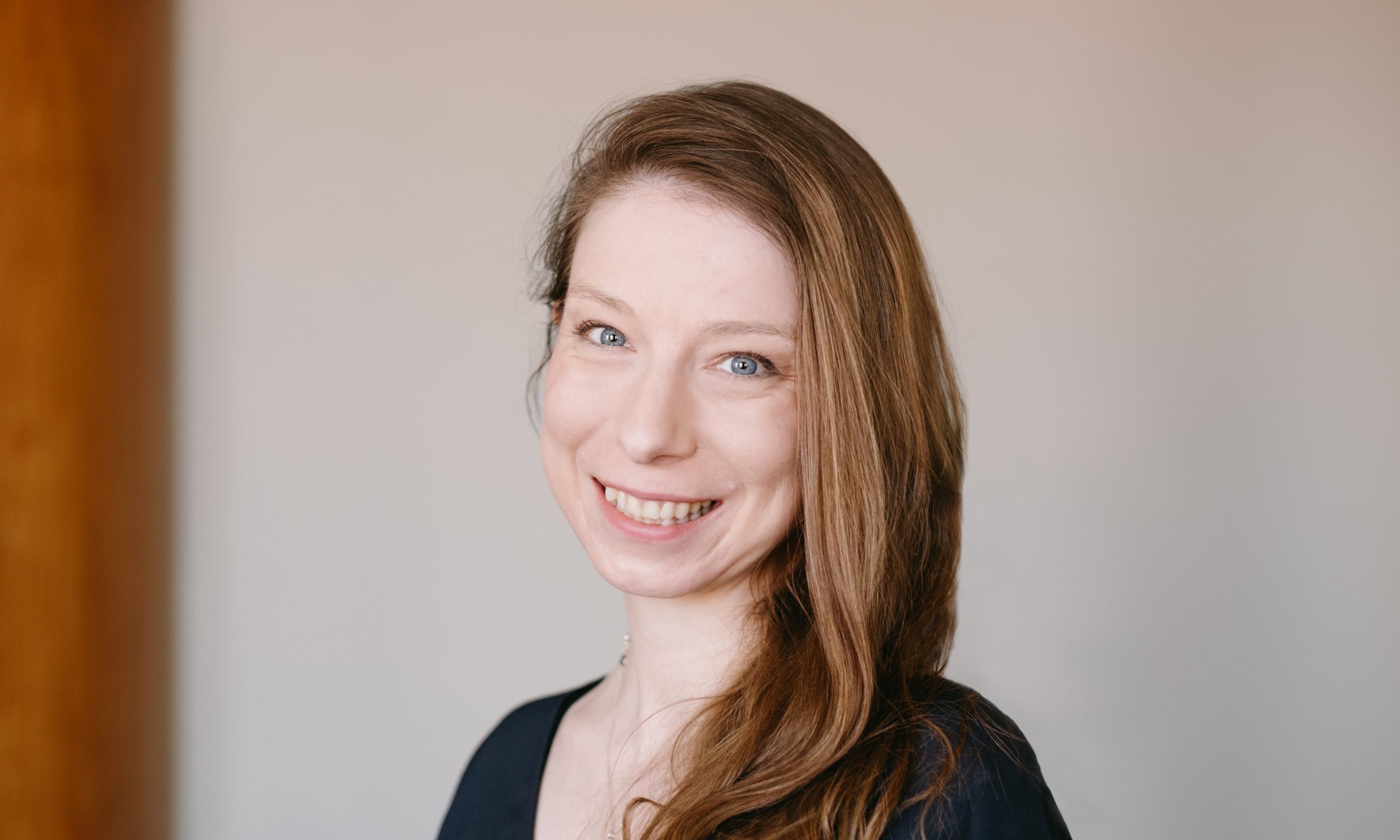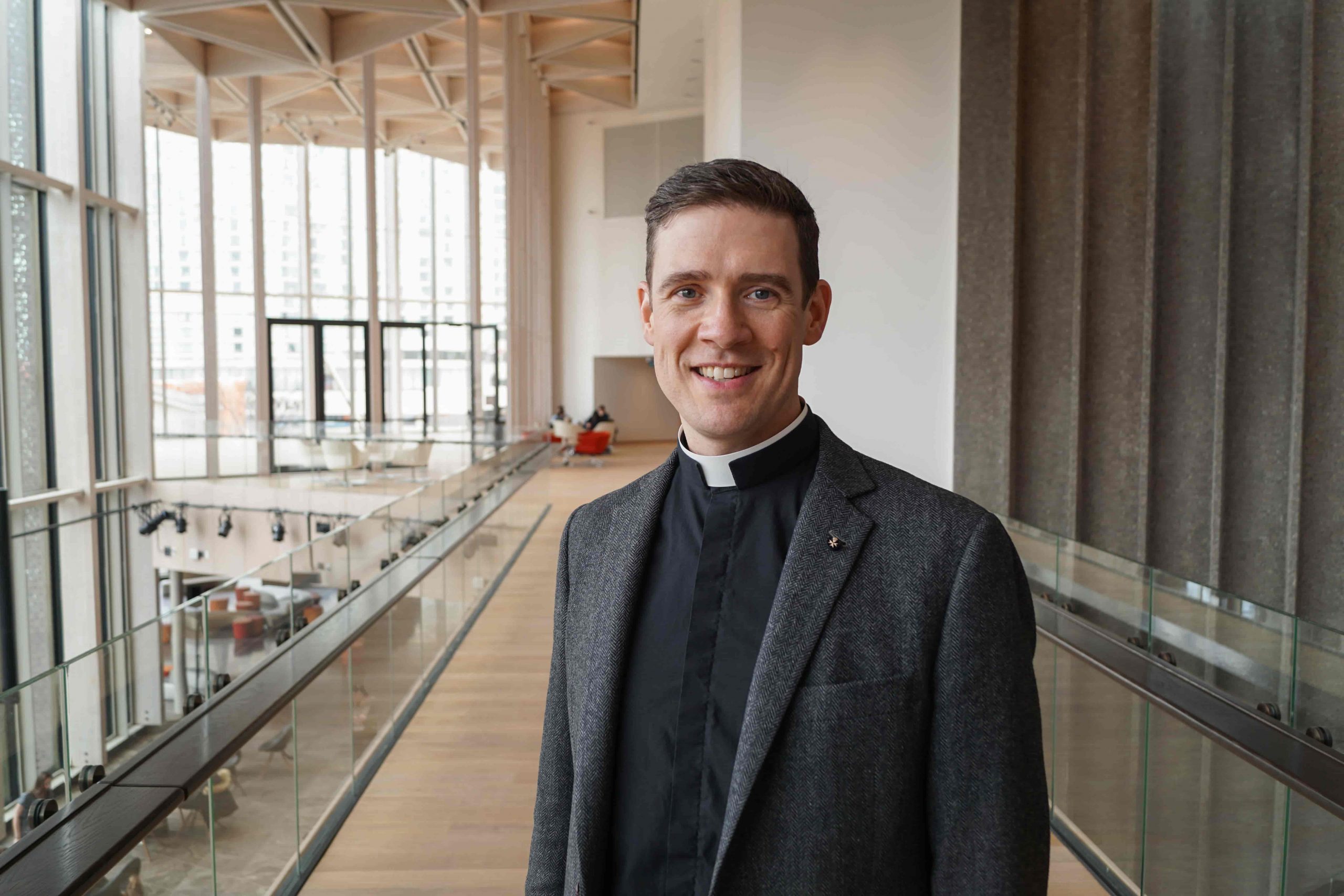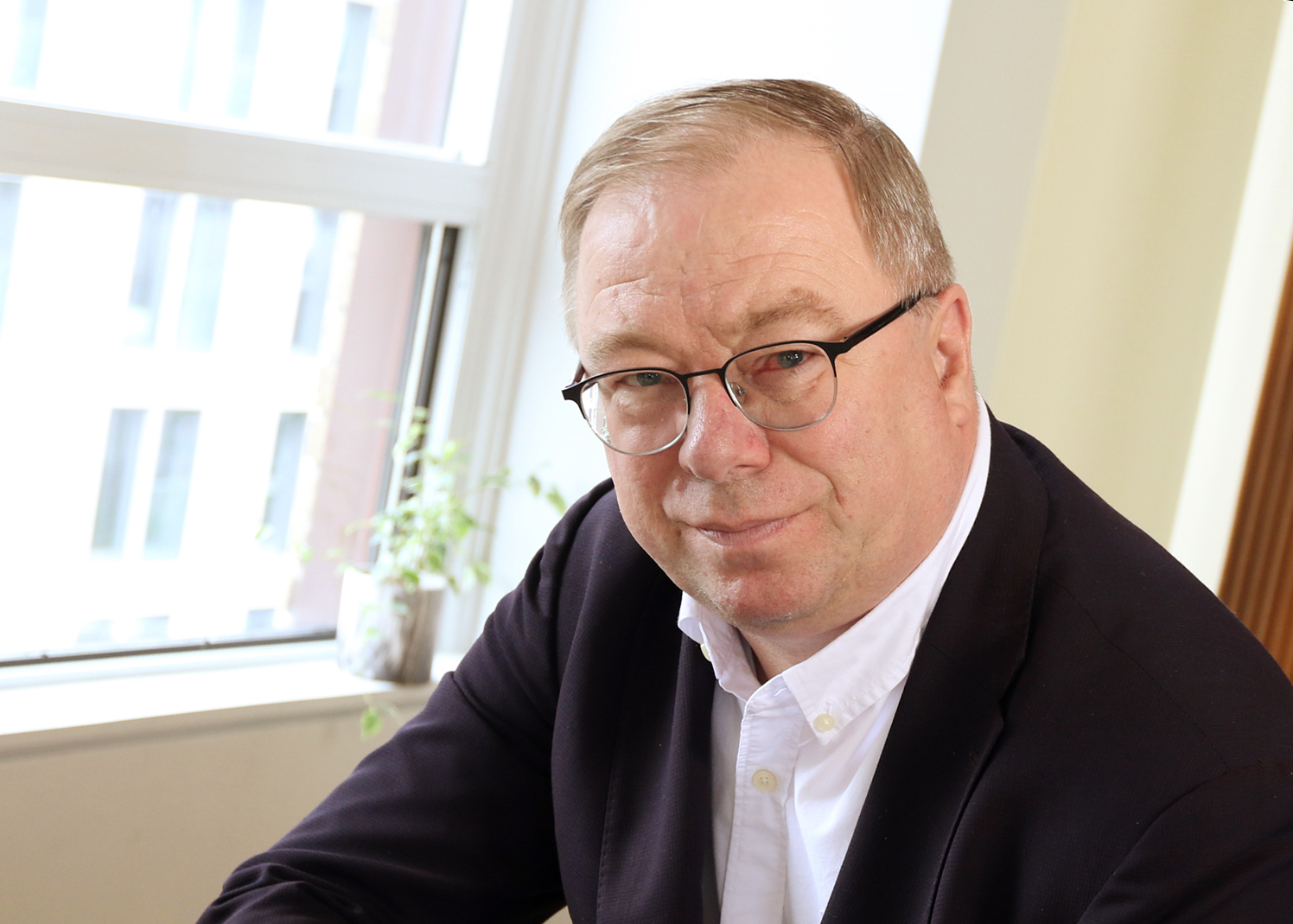RELIGIOUS FREEDOM IS A FUNDAMENTAL HUMAN RIGHT WORTH A ROBUST DEFENCE Dr. Andrew Bennett, Cardus Senior Fellow, testifies before Senate Human Rights Committee December 7, 2016 OTTAWA – Dr. Andrew Bennett, Cardus Senior Fellow, is defending religious freedom as a fundamental human right that cannot simply be lumped in with other concepts, such as inclusion and tolerance. “Without religious freedom, we cannot then move on to give utterance to our beliefs (freedom of speech), gather with others to share those beliefs (freedom of assembly), or form groups of our fellow human beings who share similar beliefs so as to advance the common good,” said Dr. Bennett on Wednesday. His comments came during his appearance before the Senate Human Rights Committee as an expert witness as on the issue of religious freedom. Informed by his previous experience as Canada’s Ambassador for Religious Freedom, Dr. Bennett says Canadian foreign policy needs to deal head-on with the issue of religious freedom. “In many of the countries in which our diplomats serve, religion and religious faith does not find expression simply in a perceived cultural discourse, but rather religious faith guides the social, political, cultural, and economic lives of billions of our fellow human beings,” he said. “To not understand this is to perpetuate a very serious diplomatic blind spot.” At Cardus, Dr. Bennett helps to promote religious freedom in Canada and abroad. He is also chair of the Cabinet of Canadians, a multi-faith group of almost 40 distinguished individuals, which aims to commemorate the role of faith in our country, our institutions, and our common life.-30-MEDIA INQUIRIES Daniel Proussalidis Cardus - Director of Communications 613.241.4500 x.508 dproussalidis@cardus.ca

Religious Freedom is a Fundamental Human Right Worth a Robust Defense
December 7, 2016

Giving Tuesday: Helping Charities in Challenging Times
GIVING TUESDAY: HELPING CHARITIES IN CHALLENGING TIMES Cardus identifies key questions for Canada’s charitable sector. November 28, 2016OTTAWA – Tomorrow is Giving Tuesday, which is an excellent reminder that charities are critical to our civil society and face the challenge of change alongside other key organizations in Canada. This is especially true for the numerous smaller organizations that must navigate personnel and funding challenges. The work charities do in counselling, poverty alleviation, education, and many other areas helps promote the common good. These benefits may not always be visible but they are vital. However, in conversation with charities, Cardus has learned these organizations face four major challenges:80% of the resources charities have come from only 18% of Canadians Only half of Canada’s 86,000 registered charities have paid staff; the rest depend solely on volunteers Organizations with big lobbying budgets, including big charities, unions, and corporations, mean small charities are massively outweighed in advocating for change Canada Revenue Agency audits and information requests can be intimidating for the significant number of small charitiesIn response to these findings, Cardus is calling for additional research and collaboration to help improve the climate in which charities big and small operate. Key questions that need answers include:How can reporting standards change so that small charities aren’t overloaded, but larger organizations are still held accountable? How can the Canada Revenue Agency collect better information from charities? What new challenges are charities facing in fundraising? How can charities cope with the competitive environment of their sector even when they aren’t designed as competitive bodies?“Charities are an important part of Canadian life, but like other facets of our society, they face change and challenge,” says Milton Friesen, Social Cities Program Director for Cardus. “We need to find ways to enrich grassroots expressions of charitable work across Canada to increase the common good contributions they are already making.” To access new Cardus research on charities, please click here.-30-About the Social Cities Program The Cardus Social Cities Program tries to find answers to the question: “What makes a great city and how do we get there?” Cities that are enriching for all citizens require that all of the resources within and around them interact as effectively as possible. The complex network of relationships between people, institutions, and culture represents what we call social architecture. We explore the existing social architecture and propose ways in which it might change to better serve the common good. MEDIA INQUIRIES Daniel Proussalidis Cardus - Director of Communications 613.241.4500 x.508 dproussalidis@cardus.ca
November 28, 2016

Toronto Has Options Other than Toll Roads
TORONTO HAS OPTIONS OTHER THAN TOLL ROADS If Toronto opened construction projects for competitive bids it could reduce the need for tolls by 50% November 24, 2016 HAMILTON – Turning the Don Valley Parkway and the Gardiner Expressway into toll roads may raise revenue for infrastructure projects, but it leaves a major problem unsolved: Toronto taxpayers are paying too much for construction projects. “Since the mid 1970s, Toronto has been paying a completely unnecessary premium on its construction projects,” said Brian Dijkema, Work & Economics Program Director at Cardus. “Because of an obscure section of the Ontario Labour Relations Act, the City of Toronto must restrict which companies are allowed to bid on city work to a small group of unionized Ontario companies.” Cardus studied projects that were subject to this arcane rule. We found more than half a billion dollars worth of projects per year in Toronto are restricted from the fair, open, and competitive tendering rules that the rest of the province follows. International research indicates opening up city infrastructure projects to truly competitive bids leads to savings of up to a quarter of a project’s cost. Toronto could have saved almost $150 million in 2012 alone – half of the $300 million the city wants to collect annually through highway tolls. Opening Toronto’s construction to competition would be a huge step towards fairness for Torontonians and towards maintaining the mayor’s reputation as fiscally responsible. It means that the limited pool of money available to Toronto for infrastructure would go a lot further, and would have the happy benefit of keeping more money in the wallets of those driving the DVP and the Gardiner. It’s time for Toronto to open up infrastructure projects to truly competitive bidding. To arrange an interview with Brian Dijkema (DYE’-kuh-muh), contact Daniel Proussalidis, Director of Communications.-30-MEDIA INQUIRIES Daniel Proussalidis Cardus - Director of Communications 613.241.4500 x.508 dproussalidis@cardus.ca
November 24, 2016

Canada’s Poet Laureate Among Notable Canadians Judging New National Literary Prize
CANADA’S POET LAUREATE AMONG NOTABLE CANADIANS JUDGING NEW NATIONAL LITERARY PRIZE Ross and Davis Mitchell Prize for Faith and Writing will award a total of $25,000 November 21, 2016 HAMILTON, ON— Some of the best minds in Canadian literature will judge the new Ross and Davis Mitchell Prize for Faith and Writing – a Faith in Canada 150 initiative designed to give voice to Canadians who recognize and write about the powerful truth, goodness, and beauty that faith brings to Canadian culture. More specifically, this award will call attention to our poets and short story writers from all across this nation whose faith animates their imagination and ours.Poetry JudgesDr. George Elliott Clarke Canadian Parliamentary Poet LaureateDr. Todd Swift Poet, author, and writer-in-residence for Pembroke College - University of Cambridge, EnglandDr. Deborah Bowen Professor of English at Redeemer University College and poetry criticShort Story JudgesDr. Randy Boyagoda President of PEN Canada, Professor of English, Principal & Vice-President of University of St. Michael's College in the University of Toronto Susan Lynn Reynolds Novelish, poet, and triple winner of the Timothy Findley Creative Writing AwardDr. David Staines Editor of the Journal of Canadian Poetry and Professor of English at the University of OttawaThe recognition of the role of religious belief in Canada’s past, present, and future is an important part of the celebration of the 150th anniversary of Confederation. Canadian writers and poets are invited to submit previously unpublished short stories or suites of poetry by 11:59 EST June 30th 2017. Winners will be recognized at a fall gala. For further contest details, please, visit the Faith in Canada 150 website.-30- About Faith in Canada 150 Faith in Canada 150 is a program of Cardus that exists to celebrate the role of faith in our life together during Canada’s anniversary celebrations in 2017. For more than 450 years, faith has shaped the human landscape of Canada. It has shaped how we live our lives, how we see our neighbours, how we fulfill our social responsibilities, and how we imagine our life together. To learn more, visit: faithincanada150.ca/about About Ross and Davis Mitchell When Ross Mitchell passed away in December, 2013, he left behind a legacy of story telling. Although he was many things—lawyer, entrepreneur, philanthropist—his wife Davis recalls that what most people remembered about him were his stories, and particularly how his faith was expressed through his stories. Davis, with a Masters in Theological Studies and a career as a spiritual director, is no stranger to the powerful role that stories play in spiritual growth, and much of her work has focused on the importance stories and faith play in healthy lives. After graduating from the University of Toronto with a BA in English literature, Ross went on to Law school at the University of Toronto. After just over half a decade of practicing law, he left to establish Madison Chemical, a company that would grow into a successful, international corporation. Ross and Davis leveraged this success to launch The Mitchell Foundation in 2000, whose goal was to sponsor and support faith-based organizations who were seeking to bring their message into the contemporary Canadian society. About Cardus Cardus is a think tank dedicated to the renewal of North American social architecture. It conducts independent and original research, produces several periodicals, and regularly stages events with Senior Fellows and interested constituents across Canada and the U.S. To learn more, visit: www.cardus.ca and follow us on Twitter @cardusca. MEDIA INQUIRIES Daniel Proussalidis Cardus - Director of Communications 613.241.4500 x508 dproussalidis@cardus.ca
November 21, 2016

Cardus Condemns Recent Expressions of Hate
November 18, 2016 OTTAWA—Cardus unequivocally condemns the expressions of hatred that have appeared recently through graffiti in several places within Canada, including in Ottawa and Montreal. The appearance of swastikas and other hateful messages targeting synagogues, as well as a church and a mosque, have no place in Canadian society. These incidents run counter to the message that Cardus tries to underline each day through its Faith in Canada 150 program—that faith has always had a positive place in Canadian public life and will continue to do so well past the 150th anniversary of Confederation. We extend our heartfelt support and encouragement to the faith communities that have been shocked and saddened by the recent expressions of hatred.-30- About Cardus Cardus is a think tank dedicated to the renewal of North American social architecture. It conducts independent and original research, produces several periodicals, and regularly stages events with Senior Fellows and interested constituents across Canada and the U.S. To learn more, visit: www.cardus.ca and follow us on Twitter @cardusca. About Faith in Canada 150 Faith in Canada 150 is a program of Cardus that exists to celebrate the role of faith in our life together during Canada's anniversary celebrations in 2017. For more than 450 years, faith has shaped the human landscape of Canada. It has shaped how we live our lives, how we see our neighbours, how we fulfill our social responsibilities, and how we imagine our life together. To learn more, visit: faithincanada150.ca/about MEDIA INQUIRIES Daniel Proussalidis Cardus - Director of Communications 613.241.4500 x.508 dproussalidis@cardus.ca 905-528-8866
November 18, 2016

Sterling Legal Minds Explore Religious Freedom Issues in New Book
STERLING LEGAL MINDS EXPLORE RELIGIOUS FREEDOM ISSUES IN NEW BOOK Cardus hosts official release of newly published compilation Religious Freedom and Communities. November 17, 2016 OTTAWA – – Dr. Dwight Newman, who is the Canada Research Chair in Indigenous Rights in Constitutional and International Law and a University of Saskatchewan law professor, has gathered together the writings of some of Canada’s top legal minds for a fresh examination of religious freedom issues. The result is Religious Freedom and Communities, a new book that takes a fresh look at some of the most vexing issues that have found their way into Canada’s courtrooms. More than a dozen authors have contributed to this rich compilation, including retired Supreme Court Justice Louis LeBel who highlights the collective aspects of religious freedom. Law professors Carissima Mathen and Michael Plaxton dive into the controversy over Trinity Western University’s effort to open a law school amid questions about LGBTQ rights. Newman himself explores religious freedom as it relates to Canada’s Indigenous communities.“Religion is a vital part of the lives not only of individuals, but of communities as well,” says Newman in the new book. “Religious freedom jurisprudence needs to continue to recognize this reality effectively through strong protections even in the context of challenging questions.” Religious Freedom and Communities was officially released at the Ottawa office of Cardus during a panel discussion on the issue of religious freedom. The book is available through the LexisNexis Online Store.-30- About Cardus Cardus is a think tank dedicated to the renewal of North American social architecture. It conducts independent and original research, produces several periodicals, and regularly stages events with Senior Fellows and interested constituents across Canada and the U.S. To learn more, visit: www.cardus.ca and follow us on Twitter @cardusca. MEDIA INQUIRIES Daniel Proussalidis Cardus - Director of Communications 613.241.4500 x.508 dproussalidis@cardus.ca
November 17, 2016

Hiring: Senior Web Developer
Imagine a place where your work is clearly tied to the core values that animate you. A place where your technical expertise and leadership skills are given room to flourish, and have a meaningful impact on an organization and even society at large. You're imagining Cardus. Cardus is looking for a Senior PHP Developer. This position has three main elements: communications, technical work and project management. This is a full-time, permanent position working with the rest of our staff in our Hamilton office. Does this appeal to you, or someone you know? Find full job description and application here.
October 31, 2016

Payday Loan Issue Won’t Be Solved by Education Alone
October 25, 2016 HAMILTON – Cardus welcomes a report by the Financial Consumer Agency of Canada (FCAC) calling for better consumer education about payday loan costs. The issue is especially important given that the FCAC found Canadian households’ use of these high-cost loans doubled between 2009 and 2014. However, consumer education alone will not solve the issue. “The FCAC’s focus on educating Canadian consumers about payday loan costs is laudable,” says Brian Dijkema, Cardus Program Director of Work and Economics. “But that will make a limited difference since many payday loan users are in desperate situations and financial alternatives simply aren’t available to them.”. The Cardus report Banking on the Margins shows practical measures can help consumers:Reforming the payday loan industry. Colorado passed a law in 2010 that required all loans to be repayable over at least six months, established a new fee structure, and provided consumers the ability to pay back loans early without penalty. With more-affordable payments, borrowers’ risk of falling into a cycle of repeat borrowing is significantly reduced. Municipalities can freely promote and encourage low-cost microfinance alternatives that are often available through community organizations. Governments, community foundations, churches, or charitable organizations could help decrease the risk for financial institutions to make small-dollar loans available by offering funds to backstop loan losses or by providing market-based incentives for new alternatives.While there is no silver bullet for the problems associated with payday loans, there are ways to help consumers. Action and collaboration among governments, banks, credit unions, and community groups would go a long way toward developing new and innovative small-dollar credit products. To arrange an interview with Brian Dijkema, contact Daniel Proussalidis, Director of Communications.-30- About Cardus Cardus is a think tank dedicated to the renewal of North American social architecture. It conducts independent and original research, produces several periodicals, and regularly stages events with Senior Fellows and interested constituents across Canada and the U.S. To learn more, visit: www.cardus.ca and follow us on Twitter @cardusca. MEDIA INQUIRIES Daniel Proussalidis Cardus - Director of Communications 613.241.4500 x.508 dproussalidis@cardus.ca 905-528-8866
October 25, 2016

Major National Education Report Breaks Religious Independent School Stereotypes
HAMILTON, October 11, 2016—As debate rages across Canada over the role of independent schools within the public education system, major think tank Cardus has released its latest national education survey. "The Cardus Education Survey (CES) is the only national survey commenting on the contribution of graduates from religious and independent schools to the public life of the nation," says Dr. Beth Green, program director of Cardus Education. CES 2016 confirmed findings from 2012 that undermine the stereotype that public school graduates are more civically minded than those from independent schools. "Public and separate Catholic school graduates are less likely than evangelical Protestant, Catholic independent, and nonreligious independent school graduates to feel responsible for helping those in need," says Dr. Green. "The data indicate that public school graduates are also less willing than evangelical Protestant and nonreligious independent school graduates to give blood, volunteer, and to donate to charity." Dr. Green adds that the latest survey shows educational diversity and encouraging a role for independent schools within the public education system would benefit Canadian society as a whole. CES 2016 surveyed graduates from 968 public schools and 359 independent schools earlier this year. To arrange an interview with Dr. Beth Green, contact Daniel Proussalidis, Director of Communications. Get the full report at www.cardus.ca/education. Download the media backgrounder at this link.-30- About Cardus Cardus is a think tank dedicated to the renewal of North American social architecture. It conducts independent and original research, produces several periodicals, and regularly stages events with Senior Fellows and interested constituents across Canada and the U.S. To learn more, visit: www.cardus.ca and follow us on Twitter @cardusca. CONTACT INFORMATION Daniel Proussalidis Cardus - Director of Communications 613.241.4500 x.508 dproussalidis@cardus.ca 905-528-8866
October 11, 2016



